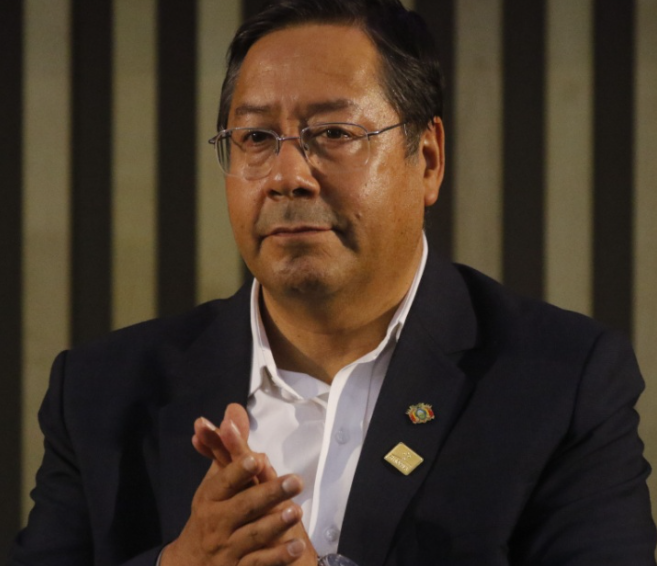The Twilight of Socialism in Bolivia

Here’s how the United States can help cement Bolivian democracy and capitalism.
Bolivia is about to end socialism at the ballot box. America and the West need to show up for the new government and the Bolivian people and support liberal reforms. How we help Bolivia will impact events in Venezuela and Cuba. If we fail to show up for Bolivia, the forces of freedom in the Western Hemisphere will doubt if we will show up for them when the time comes. If we help the new government succeed, we can accelerate the end of the China-leaning, authoritarian regimes of Latin America in President Trump’s second term.

The upcoming runoff election on October 19 will mark a turning point for the country, as it breaks away from the long-dominant socialist party and embraces a resurgence of centrist and conservative political movements. The Movement to Socialism (MAS) party, which has run the country into the ground over the past 20 years, experienced a historic repudiation during the most recent election, receiving only 3.2 percent of the vote in the first round. Socialism—and its uglier form, communism—have been repudiated by the voters in Bolivia after multiple disastrous decades.
Bolivians will choose between two presidential candidates to the right of the MAS party. Rodrigo Paz of the Christian Democratic Party (PDC) frames himself as a moderate, centrist reformer. With the slogan “Capitalism for all,” Paz promises to deliver pragmatic government. Paz’s opponent, the more conservative Jorge “Tuto” Quiroga of the Freedom and Democracy (Libre) Alliance, is calling for “a liberal ownership revolution.” Quiroga proposes granting individual ownership rights over natural resources, among other economic reforms. Either non-leftist candidate would be a fine choice, but whoever is elected the next president of Bolivia will take office at a moment of economic crisis.
As a result of socialist mismanagement, Bolivia has gone from being a fuel exporter to a net fuel importer as of 2022. About one-fifth of the population is undernourished. Nearly 84 percent of the labor force works in informal employment. Organized crime, including drug production and transit, has skyrocketed, with Bolivia now ranking third in global cocaine production.
Geopolitically, Bolivia’s best friends are Iran, Nicaragua, Venezuela, Russia, China, and Cuba. As a result, Bolivia has been written off by the United States for 20 years. One former White House official who covered the Western Hemisphere policy during the first Trump administration told me that Bolivia did not come up in a single meeting or cable.
The United States and the West can take several steps:
First, ensure that the United States sends an unusually high-level political delegation to the inauguration of the next president. Either Paz or Quiroga represents meaningful progress and should be recognized accordingly. A strong public statement by President Trump after the election would also be welcomed.
Second, the new government will need to address the issue of drugs. Many voters, regardless of who wins, may be indirect beneficiaries of the drug trade. The drug trade in Bolivia must be confronted, but in a way that does not invite a coup or violent overthrow of the democratic government.
Third, the United States and the West should encourage the new government to remove Cuba, Iran, and Russia from the economy. Removing the Chinese Communist Party will be much more difficult, as the CCP is a major trading partner for Bolivia and the neighborhood: Peru, Chile, Argentina, and Brazil. China is also a significant creditor to Bolivia.
The United States should form a partnership with Bolivia around minerals. Bolivia holds the world’s largest reserves of lithium, a key ingredient in the production of rechargeable batteries. A minerals deal similar to the one the United States has formed with Ukraine could secure investments from the United States and likely unlock other forms of needed assistance for Bolivia.
Bolivia has not invested in the production and exploration of its gas. Due to the incompetence of the MAS government, Bolivia is now a natural gas importer, despite having 10.7 trillion cubic feet of proven reserves. Now is the time to reset the arrangement on gas and bring in market-based investors. Bolivia could develop its LNG resources and export fuel to Asia via Peru or Chile.
Digital connectivity is poor in Bolivia. US investors could help solve this problem under the right arrangements.
The Development Bank of Latin America and the Caribbean (CAF), the Inter-American Development Bank (IDB), and the World Bank should prioritize large-scale investments after the election, particularly in infrastructure and energy, including gas and minerals, while supporting a market-based reform agenda that is mindful of Bolivia’s poverty. The European Union, Spain, and Japan could each contribute to addressing social sector challenges, such as health and education.
Finally, the president of the United States should receive the new president of Bolivia in the Oval Office within the first six months of the new administration, assuming the country is moving in the right direction.
Going big for Bolivia will put another country on our side of the ledger. Acts of generosity and creative investments now in Bolivia will lead to a successful government in Bolivia and will set the table for taking on the historical task of ending socialism in Venezuela and Cuba in President Trump’s second term.
- Questions and Answers
- Opinion
- Motivational and Inspiring Story
- Technology
- Live and Let live
- Focus
- Geopolitics
- Military-Arms/Equipment
- Ασφάλεια
- Economy
- Beasts of Nations
- Machine Tools-The “Mother Industry”
- Art
- Causes
- Crafts
- Dance
- Drinks
- Film/Movie
- Fitness
- Food
- Παιχνίδια
- Gardening
- Health
- Κεντρική Σελίδα
- Literature
- Music
- Networking
- άλλο
- Party
- Religion
- Shopping
- Sports
- Theater
- Health and Wellness
- News
- Culture

